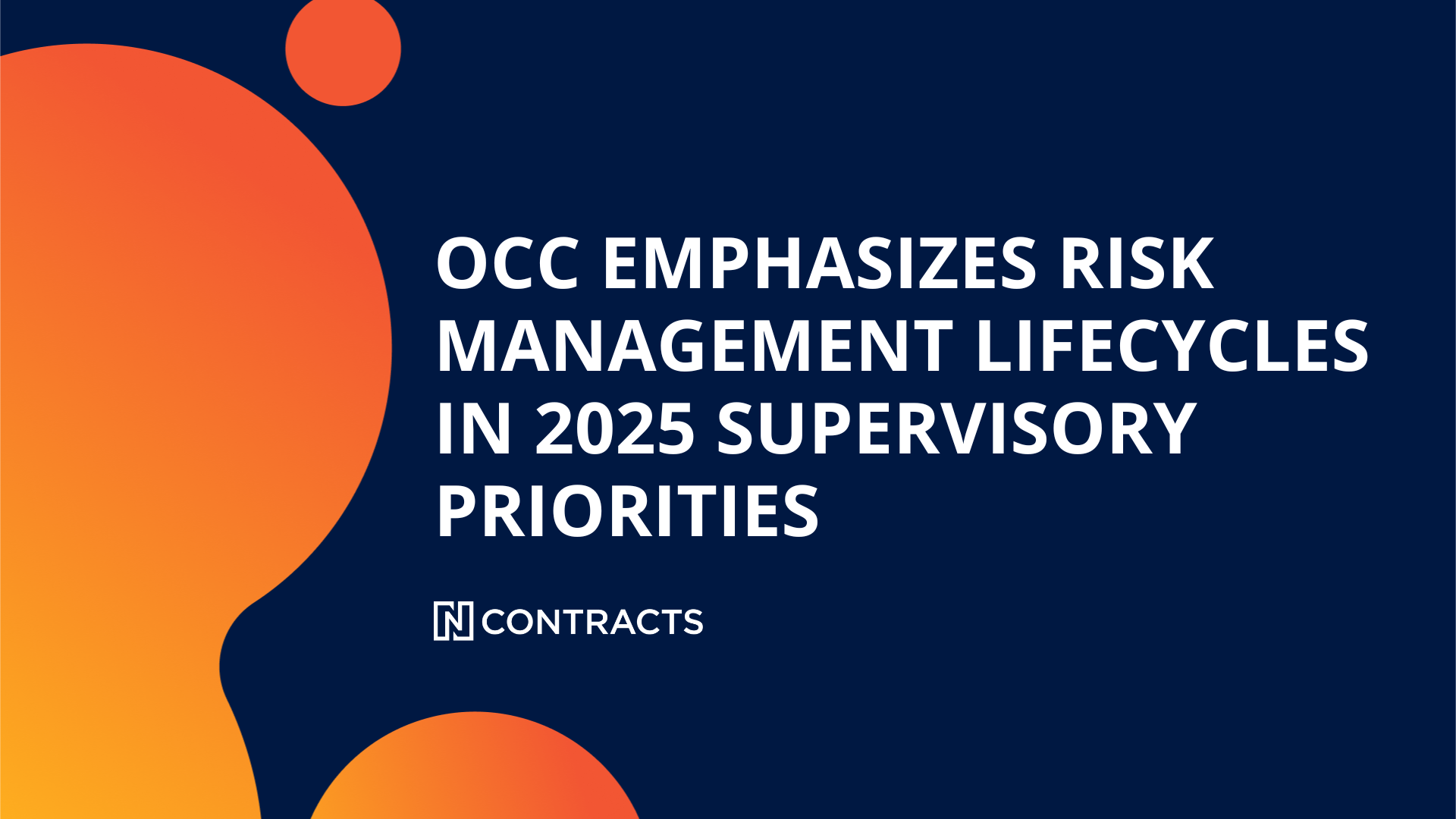Subscribe to the Nsight Blog
All Topics
Risk & Compliance
Product Insight
Banks
Lending Compliance
Credit Unions
Risk Management
Fair Lending
Nfairlending
Cluster: Risk Management
Compliance
Lending Compliance Management
Integrated Risk Blog
Regulatory Compliance Management
News & Updates
Nrisk
HMDA
Risk
Vendor Management
Mortgage Lenders
Ncomply
Business Resiliency
CRA
Lending Compliance Blog
Third-Party Vendor Management
Business Continuity
Vendor
CFPB
Ncontinuity
Cybersecurity
Fintech
Regulatory Updates
Nvendor
Regulatory Compliance
Strategic Planning
Ncyber
Ntransmittal
Audits & Findings
Compliance Management
OCC
Company Culture
Audit
Nverify
Exams
FDIC
Nfindings
Findings
NCUA
Business Continuity Management
Contract Management
Employee Intranet
Vendor Risk Management
Contract
Enterprise Risk Management
FRB
Findings Management
Third-Party Vendors
Compliance Risk
FFIEC
Ncontracts manager
Vendor Risk
Wealth Management
Artificial Intelligence
Regulatory Brief
1071
ABA Bank
Access Control
Audit Findings
Board Portal
Call Report
Complaint Management
Cybersecurity Assessment
Digital Tansformation
Due Diligence
Efficiency
Employee Engagement
Exam findings
FIEC
Governance and Risk Management
Inc. 5000
Integrated Risk Management
Internal Audit Management
Mortgage Lending
Nboardportal
Press Release
Verify




